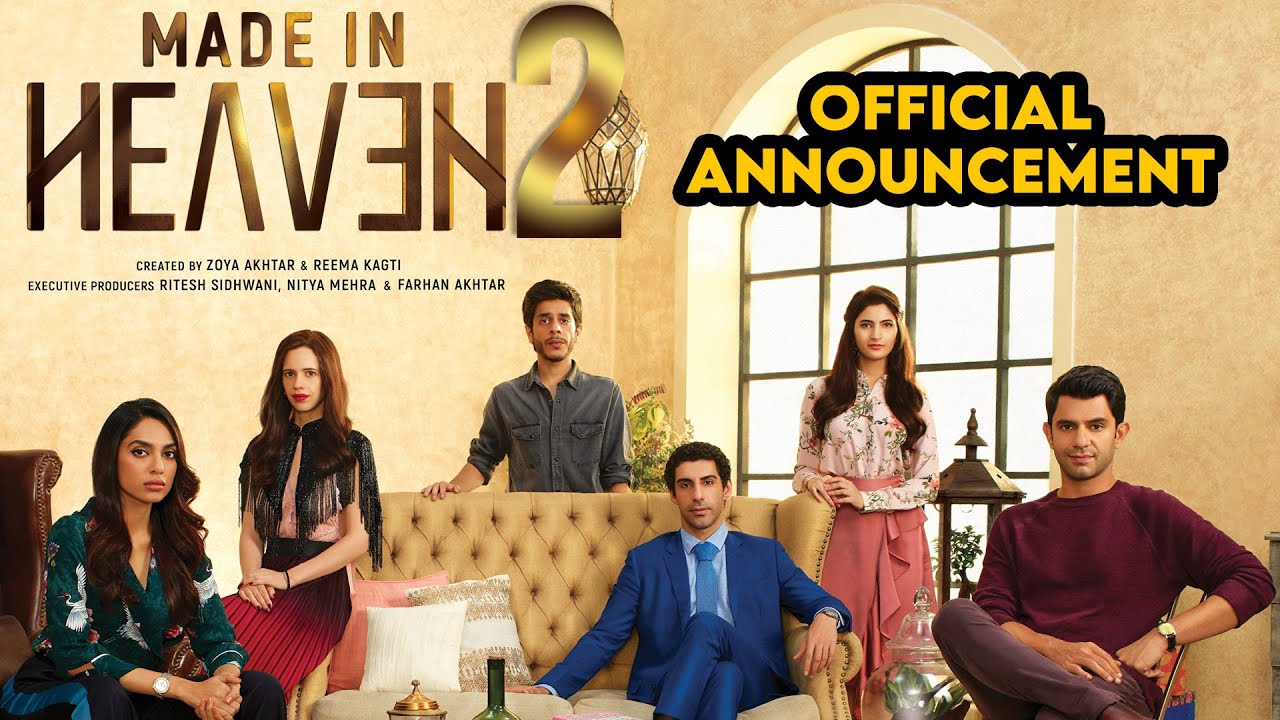"Made in Heaven" has returned with its much-anticipated second season, bringing back the captivating world of Delhi's high society wedding planners Tara and Karan. The show, known for its exploration of societal norms, relationships, and aspirations, once again delves into the lives of its vibrant characters. While the new season continues to champion its proud and progressive themes, it does navigate through some storytelling hurdles that leave viewers feeling a bit lost at times.
Proud and Progressive Themes:
"Made in Heaven" has consistently been applauded for its bold approach to addressing societal issues. The show continues to shine a spotlight on topics like LGBTQ+ acceptance, class divisions, and women's empowerment. Season 2 maintains its unapologetic stance on advocating for change and dismantling outdated norms. The characters confront biases, prejudices, and personal struggles, making the series a poignant mirror reflecting the complexities of contemporary Indian society.
Character Development and Performances:
As expected, the performances in "Made in Heaven" Season 2 are a standout feature. Arjun Mathur and Sobhita Dhulipala, reprising their roles as Karan and Tara, bring depth and authenticity to their characters. The evolution of their personal and professional lives adds layers to the narrative. The supporting cast, including Jim Sarbh, Kalki Koechlin, and Shashank Arora, contribute significantly to the show's magnetic ensemble.
Navigating through Lost Threads:
While "Made in Heaven" Season 2 maintains its commitment to addressing pertinent social issues, it does face challenges in streamlining its storytelling. With multiple subplots and character arcs, the series occasionally feels fragmented, leading to moments where the viewer might feel a tad lost. Some storylines could benefit from a tighter narrative structure, allowing for a more immersive viewing experience.
Visual Brilliance and Aesthetic Appeal:
One aspect of "Made in Heaven" that remains consistently remarkable is its visual storytelling. The series excels in creating a visual tapestry of opulence, decadence, and urban chaos. The grandeur of the wedding setups juxtaposed with the intimate moments of characters' lives creates a compelling contrast that draws the audience into the world being portrayed.
Conclusion:
"Made in Heaven" Season 2 continues to uphold its proud and progressive stance, unflinchingly exploring the complexities of modern Indian society. The series tackles important themes with courage and conviction, challenging viewers to confront their own biases and preconceptions. While the storytelling may occasionally meander, the exceptional performances, visual brilliance, and thought-provoking narrative ensure that the show remains an engaging watch. As "Made in Heaven" Season 2 navigates through the maze of its characters' lives, it emerges as a testament to the evolving landscape of Indian web series and its potential to provoke introspection and discourse.


